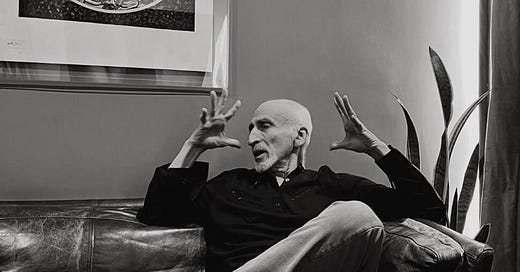Activating Your Life Force (Phil Stutz)
Listen now (45 mins) | "The human being is the most giving, self-sacrificing, loving entity and also is the most devious, amoral, vicious, and murderous is the better word..."
You can also listen to this episode on Spotify, or wherever you get your podcasts.
I met Phil years and years and years ago, although he probably would not remember. He was part of an event that I put on and I got to witness him and Barry Michaels, he is a therapist and Phil's lifelong collaborator. They wrote The Tools and Coming Alive together and at …
Keep reading with a 7-day free trial
Subscribe to Pulling the Thread with Elise Loehnen to keep reading this post and get 7 days of free access to the full post archives.





